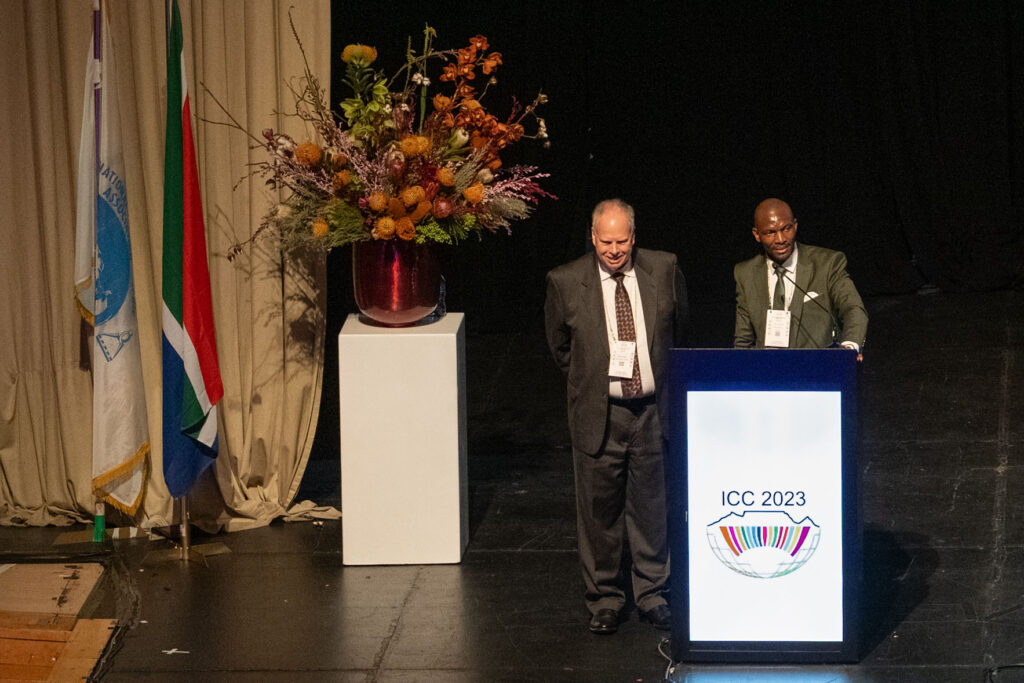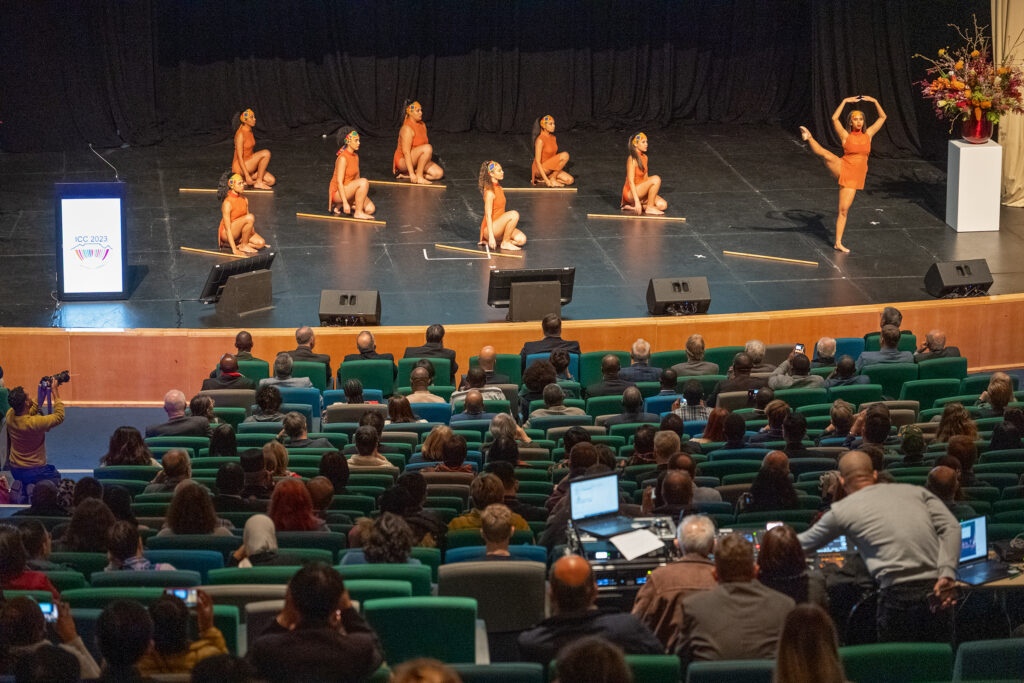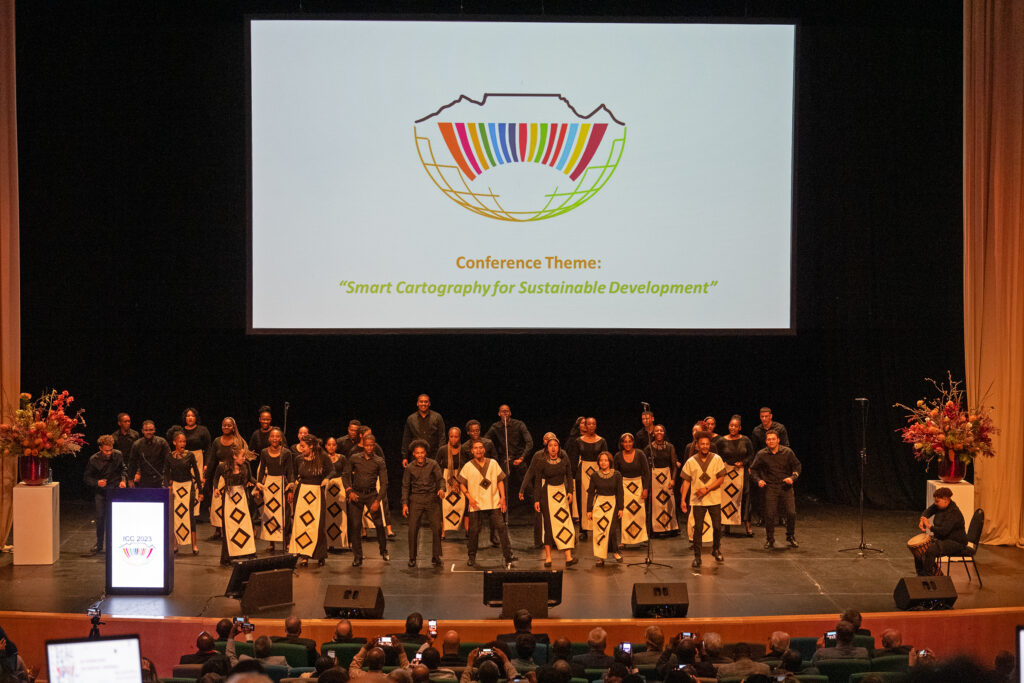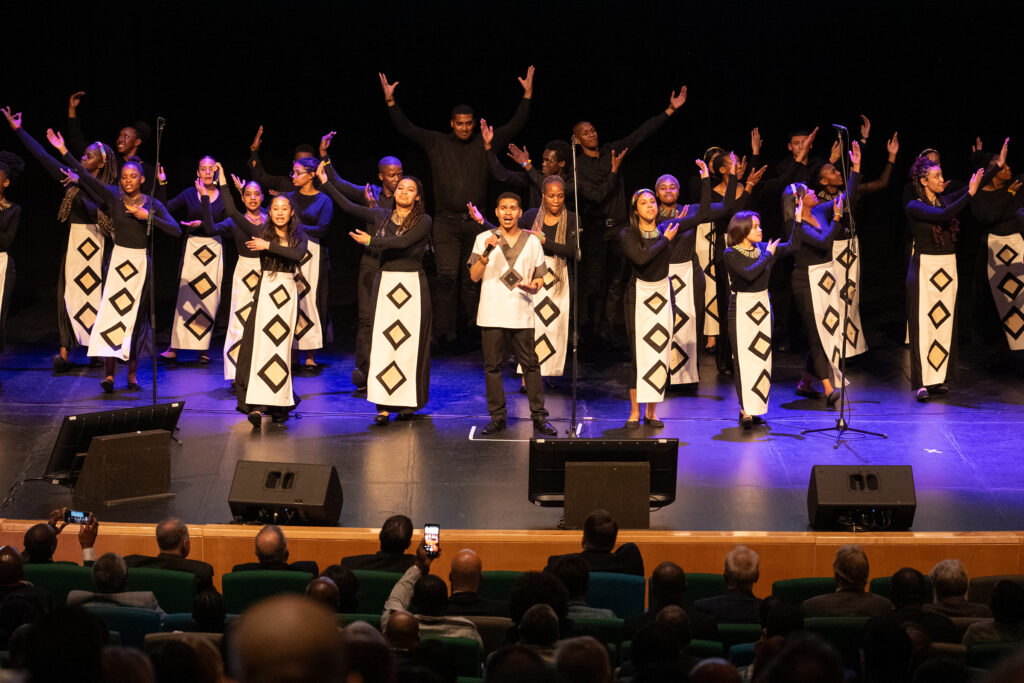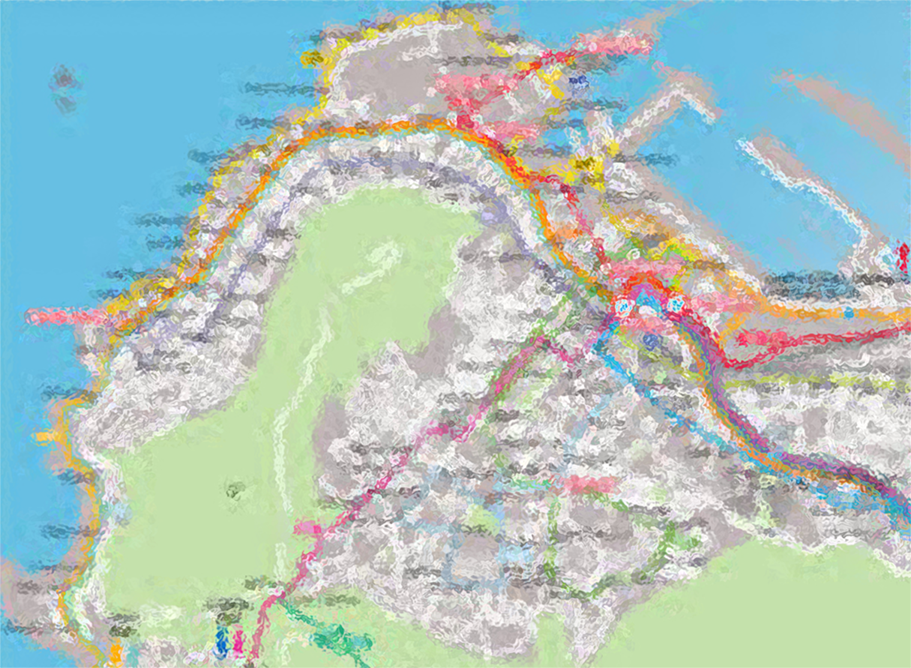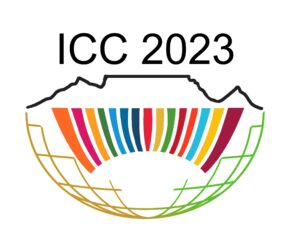 The new issue of the International Journal of Cartography is now available on the Journal website.
The new issue of the International Journal of Cartography is now available on the Journal website.
Details of papers published in the Issue are provided below:
- The paper Options for systematizing cartographic rules was provided by Václav Talhofer, Jiří Drozda and Filip Dohnal. This paper suggests a systematization of the rules that are used in the whole technological cycle of map creation. The suggested system of rules is processed into the design of a knowledge-based ontology database intended for solving especially collision situations during the creation of topographic maps.
- Otakar Čerba, Tomáš Andrš, Loic Fournier and Martin Vaněk contribute Cartography & Web3. This article addresses the relationship between cartography and Web3. It describes the basic features of Web3 and its future relationship to the field of cartography. The paper aims to generate discussion regarding the evolutionary changes in cartography that may occur due to the emergence of Web3 technologies such as Blockchain.
- Square-glyphs: Assessing the readability of multidimensional spatial data visualized as square-glyphs is provided by Gianna Daniela Müller, Daria Hollenstein, Arzu Çöltekin and Susanne Bleisch. In this paper, the authors present a user study evaluating the readability and interpretability of the square-glyphs. They compare the user performance with squareglyphs containing two and four simultaneously mapped data dimensions and different value compositions.
- The following paper is Understanding Relevance in Maps through the use of Knowledge Graphs by José Pablo Ceballos Cantú, Markus Jobst and Georg Gartner. The paper describes ‘SeMaptics’, a tool has been developed to better understand the relationship between the two domains of ontological and spatial dimensions. Ontological mapping allows for discrete ontologies to be projected into the spatial field. Such ontologies are regularly seen in a continuous or overlapping layered format in the spatial dimension. However, integrating both spaces results in a novel method, which could add additional perspectives to the map-making process. SeMaptics implements a graph structure to accommodate graph visualizations using D3js.
- Visualising temporal changes in visitors’ areas of interest using online geotagged photographs by Bochra Bettaieb and Yoshiki Wakabayashi. Details a study undertaken to visualise the spatial patterns and temporal changes in the areas of interest (AOIs) of foreign visitors using data derived from geotagged photos on Flickr. The results show differences in the distribution of AOIs between visitors from Asia and Europe. Furthermore, the distribution of changed AOIs may reflect environmental changes due to a redevelopment project.
- Behind the first Habsburg map of Transylvania – comparative analysis of contemporary manuscript maps by Zsombor Bartos-Elekes provides results from a study analysed, for the first time, three other contemporary manuscript maps: “Mappa della Transilvania”; “Continet mappas comitatuum”; and the map by Morando Visconti. The research was conducted to determine the relationship between the printed map and the manuscript maps, the map sources and if they were copies. They also wanted to determine the authors and the date of the manuscript maps.
- Gertrud Schaab, Serena Coetzee, Nerhene Davis and Faith N. Karanja, in their paper Developing teaching/learning materials on “Sense of Place” with students in an international university cooperation: overall approach and first phase outcomes at Karlsruhe University of Applied Sciences report on their project to jointly develop digital teaching and learning resources related to sense of place, which can be used in blended learning at several universities. This paper provides the results of the first phase of the project.
- Spatial aspects of evacuation: A closer look at user interaction during route choice by Dajana Snopková and Lukáš Herman reports on one aspect of a larger project that dealt with the study of the influence of spatial parameters of buildings on decision-making during evacuation. They focussed on the analysis of the collected interaction data (mouse rotation) and their relationship to the laterality of the participants and the final choice of an evacuation corridor. Statistical analysis using correlation coefficients and the Welch t-test were employed in the study.
- The paper by Haowen Yan, Weifang Yang and Xiaomin Lu: provided information on their research: Quantitative expressions of spatial similarity between road networks in multiscale map spaces. Using road networks as an example, the authors proposed an approach to calculating the spatial similarity degree between a road network at a larger scale and its generalized counterpart at a smaller scale. They argue that the proposed quantitative method lays a foundation for using spatial similarity as a constraint during map generalization.
- José Jesús Reyes Nunez provides a paper entitled: The presence of geoinformatics in Hungarian secondary education. The paper offers a brief background on the influence that geoinformatics currently exerts on geography teaching in Hungarian secondary schools: the main characteristics of geography teaching at elementary and secondary levels; skills and competences that should be developed by geography in this level; and how geoinformatics could assist further development. Finally, some ideas are proposed that might increase the presence of geoinformatics in the teaching of geography at the secondary level.
- Orienteering maps, perhaps the least familiar map type to cartographers, are addressed in the paper History of orienteering maps: in the light of the evolution of survey and reproduction techniques by László Zentai. Map symbology, surveying methods and printing technologies employed in the development and production of orienteering maps are explained.
- Atlassing Sustainable Development: A Participatory and Critical Approach to Neighbourhoods in Transition by Barbara Roosen and Mela Zuljevic paper discusses the production of an atlas as a critical and trans-disciplinary practice for participatory research in sustainable development. Starting from critical cartography and participatory mapping, the authors propose the process of ‘atlassing’ as a tool to support negotiation between various sustainability aspects in relation to everyday practices, different research inputs, actors and participatory activities.
- The primary goal of the article by Nina Polous, Smart Cartography: representing complex geographical reality of 21st century, is to reflect on the term “Smart Cartography”. The author makes the term “cartography”, the focal point of the debate rather than the word “smart”. This paper simplifies the definition of cartography to the unexcludable “geographical reality,” critical for understanding our environment. It examines how this term has been interpreted historically and contemporarily since the mid-19th century.
- Krzysztof Pokonieczny and Wojciech Dawid provide the paper The Application of Artificial Neural Networks for the Generalisation of Military Passability Maps. Passability maps are cartographic studies that are generally used by commanders when planning military operations. This article presents a methodology for the automated generalization of passability maps. For this purpose, artificial neural networks (ANN) were used, and, specifically, a multilayer perceptron. The paper describes the manner of preparing teaching data to train artificial neural networks and their implementation, which led to the creation of the resulting maps. In order to test the consistency of maps, Moran’s I spatial autocorrelation coefficient was determined.
- Finally, a regular column in issues of this Journal – MAPS IN HISTORY by Imre Demhardt – focusses on : Cape Town’s changing waterfront. Three maps – Plan of Cape Town (1854), South African Railways – Table Bay Harbour (1911) and Map of Cape Town (1948) – are used to ‘track’ the changes to the harbour.
Papers can be viewed via the Journal website.
Bill Cartwright and Anne Ruas
Editors, International Journal of Cartography




